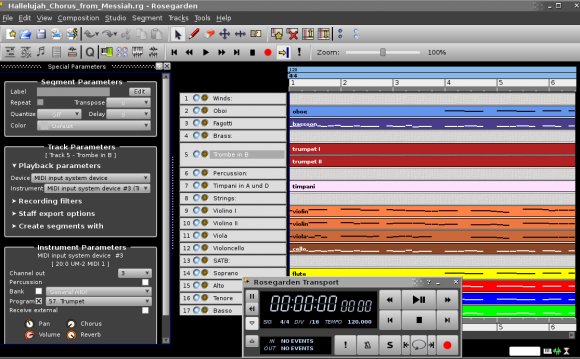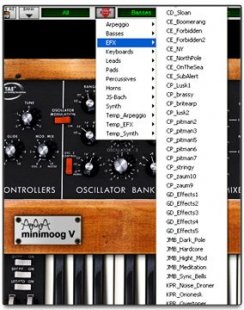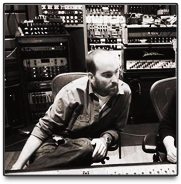
 in lots of ways, the trajectory for a DJ is straightforward: master technical basics, get great at picking music, and attempt and develop an original style that is your entire very own. While the trajectory for manufacturing is in some means very similar, modern DAWs supply such a myriad of choices making it an easy task to fall into one of the most significant issues, particularly when just beginning! These days we’re evaluating 5 quite common blunders virtually every newbie producer makes, and exactly how to prevent them.
in lots of ways, the trajectory for a DJ is straightforward: master technical basics, get great at picking music, and attempt and develop an original style that is your entire very own. While the trajectory for manufacturing is in some means very similar, modern DAWs supply such a myriad of choices making it an easy task to fall into one of the most significant issues, particularly when just beginning! These days we’re evaluating 5 quite common blunders virtually every newbie producer makes, and exactly how to prevent them.
1. LESS IS OBVIOUSLY MORE
Whenever starting out, the impulse associated with great majority of producers would be to grab at each additional plug-in and little bit of technology they are able to get hold of, and just why maybe not? Each product inevitably markets itself as the be-all, end-all product that will instantly inject your paths with fresh power and life.
Although it’s true that there is a large number of pieces of gear and plugins nowadays that (whenever utilized properly) are godsends, catching a number of all of them and tossing them into the newest track won’t do anything but throw in a number of processing that is also complex to manage.
It could be difficult, but alternatively when trying to utilize a million different tools to achieve the exact same effect, take to getting a specialist in using various: mastering one synth plus one compressor is going to do more for your workflow than half-understanding the functions of ten synths and twenty compressors, a mantra that is been duplicated by the loves of Skrillex, which made their entire frightening Monsters record with just Ableton’s onboard processors.
 2. LOUDER DOESN’T SUCCEED BETTER
2. LOUDER DOESN’T SUCCEED BETTER
There’s maybe absolutely nothing even more infuriating in the wonderful world of manufacturing than lovingly mixing down a track, spending countless hours adjusting every knob, every parameter, automating right down to the second, then referencing it to an expert club track and seeing your smile sink slowly as your track is completely pummeled by the thump of the professional equivalent. For a lot of producers, that is a huge way to obtain frustration, and rightfully so, as it could feel there’s next to nothing it's possible to do to compete on the standard of these thumping mixes.
The clear answer that many starting manufacturers leap to could be the notorious “brickwall” limiter, which is fundamentally similar to making use of a butcher knife for which you should utilize a scalpel. The thinking usually cited for this rehearse is generally something such as “Mastering techs utilize limiters, and they make noisy tracks, so I should too.” Sadly this results in all kinds of unfavorable and unanticipated effects, like pumping noises, dynamics loss, and distortion. Ultimately, it's easier to take some time to master quite about the mastering procedure, or even to save up to cover a mastering professional, rather than take the simple course and absolutely squash your paths.
3. DON’T WORRY THE PRESETS
It appears progressively your manufacturing globe is split into people who view presets once the ultimate cheat, and those just who see them due to the fact only way to make. While their particular ultimate function likely lies approximately those two opinions, it’s incredibly important to have an acceptable method of presets (by expansion, examples and test packs).
 Many producers might cringe in the noise of a Nexus piano preset, it's important to understand that the finish aim of a producer ought to be pleasure artistically with by themselves and with the audience, which might or is almost certainly not comprised of individuals who can recognize presets. This isn’t always license to go and write something similar to “KNAS, ” however should always hold an open head to both examples and presets, if only as resources to supplement your noise and drastically increase effectiveness.
Many producers might cringe in the noise of a Nexus piano preset, it's important to understand that the finish aim of a producer ought to be pleasure artistically with by themselves and with the audience, which might or is almost certainly not comprised of individuals who can recognize presets. This isn’t always license to go and write something similar to “KNAS, ” however should always hold an open head to both examples and presets, if only as resources to supplement your noise and drastically increase effectiveness.
An easy way to utilize presets and samples without dropping the integrity of a track is always to combine styles that traditionally aren’t associated: for example, use hip-hop synth samples in a techno track; you’ll find that the jarring existence of a sound from an entirely various sonic universe can produce some exciting and unique outcomes.
4. We APPEAR TO BE [FAVORITE PRODUCER], are I FAMOUS YET?
Far too many manufacturers confuse mastering the particulars of a method with learning steps to make a specific product. When starting out, the drive is significantly clearly to help make a track reminiscent of the track that got you into production to start with, or at lowest, the track you love currently. In a current interview with DJTT, happy Date advised emulating the sounds of a popular singer as a fantastic starting point for brand new producers.
There wasn’t anything inherently incorrect with having a fondness for an audio or design, but making with a continuing eye towards making one kind of noise will stunt one’s development as a producer and also as a musician. Tutorial-hunting and remake efforts will only teach you the noise this is the outcome of a process hidden to any or all although initial producer.
Instead, spend time reading and studying basic strategies of compression, EQing, and noise design; the end result will undoubtedly be a much richer production knowledge and a wealth of understanding that is appropriate to numerous manufacturing styles and altering preferences.
5. OBSESS THROUGHOUT THE ART, never THE CRAFT
This really is a straightforward thing to keep in mind, but it’s lost on tons of producers beginning: you will have a spot of which you are fairly comfortable with your manufacturing abilities. Whenever the period might, it's important for remember that a production skillset is not the end objective, writing music is!
it is great to have a well-mixed track with a great amount of perfectly synthesized noises, but if it’s a boring track, no quantity of clean mixdown will ever ensure it is interesting. Consider the core principles of sound design as instructions, not hard and fast rules. Once you’re fairly confident with understanding each one of the options that come with your chosen DAW, decide to try doing anything unconventional or officially “dumb, ” like utilizing a limiter for a passing fancy track, or hefty reverb on a bassline, or using a very large imager on a synth range. These corrections may not make your track better theoretically, but this sort of experimentation is virtually constantly going to create your track much more interesting.
of the five mistakes – and hang it up inside studio as a note! (DJTT members just – signup simply takes a contact address)











